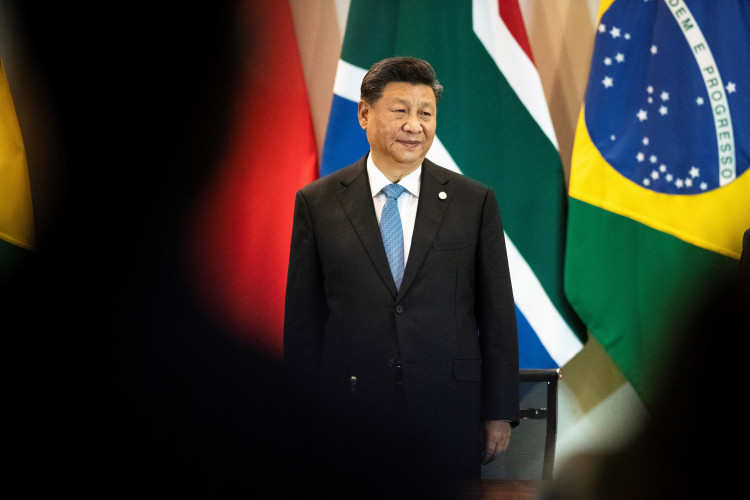China's increasing military activity around Taiwan and its refusal to renounce the use of force were underscored this week as President Xi Jinping visited a province directly across from the island nation. The visit followed large-scale military exercises by the People's Liberation Army (PLA), escalating the already tense situation in the Taiwan Strait.
President Xi's visit to Dongshan Island in Fujian province, historically significant as the site of a major victory for the Communist Party during the Chinese Civil War, carried symbolic weight. The timing and location were seen as a pointed message to Taipei and its international allies about Beijing's unyielding stance on Taiwan. Chinese state media reported Xi's focus on "advancing rural revitalization" and "carrying forward revolutionary traditions," but analysts view the visit as a signal of China's determination to bring Taiwan under its control.
Earlier this week, China staged extensive military drills in the waters around Taiwan, marking the second major exercise since Taiwanese President Lai Ching-te took office in May. The PLA's maneuvers included a record number of warplanes crossing the median line of the Taiwan Strait, a sensitive and unofficial boundary that had previously served as a buffer between the two sides. Beijing described the operations as a warning against what it called "separatist acts" following a speech by President Lai, which reaffirmed Taiwan's independent governance.
China's Taiwan Affairs Office spokesperson Chen Binhua reaffirmed Beijing's position at a press conference, stating, "We will never commit ourselves to renouncing the use of force." He emphasized that any use of force would be aimed specifically at "external forces" and a small group of Taiwanese separatists, not the general population of Taiwan. However, Chen warned that if Taiwan chose to act against Beijing's warnings, it would be a path to its own destruction.
Taiwan, which rejects China's sovereignty claims, criticized the drills as counterproductive, arguing that they had only strengthened international support for the island. Taiwan's National Security Bureau Director-General Tsai Ming-yen said, "The Chinese communists' military exercise has created a negative effect in that it made the international community more supportive of Taiwan." Tsai noted that U.S. officials, including Deputy Secretary of State Kurt Campbell, had expressed concerns to Beijing regarding its military activities during recent diplomatic talks with South Korean and Japanese counterparts.
The U.S., Taiwan's primary defense ally, has communicated its disapproval of China's escalatory behavior. Following the military exercises, Washington reiterated its support for Taiwan, and Japan scrambled fighter jets in response to the heightened tensions. The U.S. has maintained that any attempt to change the status quo in the Taiwan Strait through military means would be unacceptable.
Despite the diplomatic backlash, Chinese officials maintain that their actions are justified. The PLA said it would continue military drills if provoked, hinting at further action depending on Taiwan's behavior and international developments. Beijing views the growing military cooperation between Taiwan and the U.S. as a direct challenge to its claims and influence in the region. Chinese officials specifically criticized Taiwan President Lai's remarks last week, which stated that neither side of the Taiwan Strait was subordinate to the other. Beijing described his comments as advancing a "new two-state theory," which it rejects.
Adding to the tensions, Taiwanese officials reported that the PLA had conducted a series of blockades around Taiwan's main island, a maneuver reminiscent of past exercises aimed at demonstrating China's military capabilities and resolve. In its defense report, Taiwan's Ministry of Defense accused China of trying to normalize such tactics as a means of legitimizing the potential use of force against Taiwan.
In response to the latest military drills, Taiwan's government said it had detected 22 Chinese aircraft and five naval vessels operating near its territory. The Taiwanese defense ministry emphasized that the military remains on high alert and is continuously working to enhance its preparedness against what it described as an increasingly severe threat from China.
Xi's visit to Fujian province comes as Taiwan continues to strengthen ties with other democracies. Former President Tsai Ing-wen is expected to visit the United States and Europe to bolster international support for Taiwan's sovereignty. Beijing, meanwhile, warned that such trips would further provoke Chinese retaliation. Chen, the spokesperson for China's Taiwan Affairs Office, called on the U.S. to avoid sending "wrongful signals" to Taiwan independence forces.





